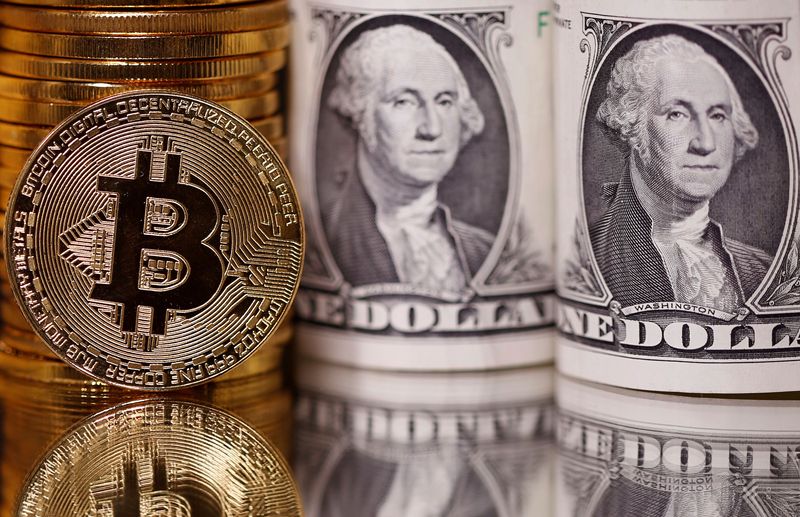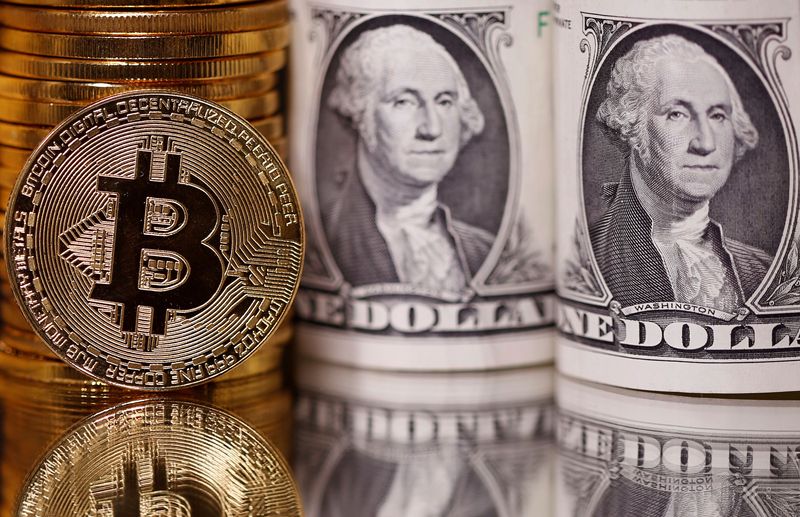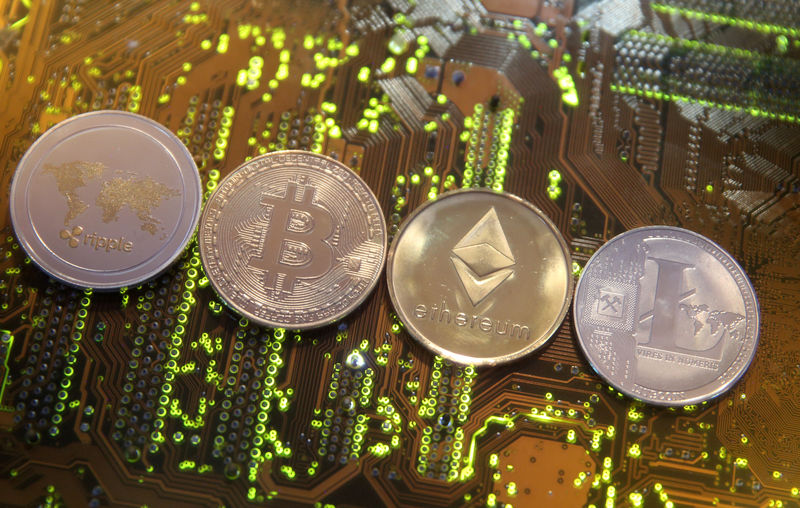By Michael S. Derby and Ann Saphir
NEW YORK (Reuters) -Federal Reserve Chair Jerome Powell said on Wednesday the U.S. central bank has no desire to be involved in any government effort to stockpile large amounts of bitcoin.
“We’re not allowed to own bitcoin,” Powell said at a press conference following the Fed’s latest two-day policy meeting, in which policymakers cut rates as expected while signaling a less certain path for monetary policy in the months ahead.
In terms of the legal issues around holding bitcoin, “that’s the kind of thing for Congress to consider, but we are not looking for a law change at the Fed,” Powell said.
The Fed chief was addressing the prospect of central bank involvement in the idea of the government building a so-called Strategic Reserve once President-elect Donald Trump takes office.
Powell’s comments on Wednesday dented the value of bitcoin, which has rallied sharply along with other crypto assets since Trump’s victory in the Nov. 5 election on the prospect of a more hands-off government approach to a class of assets that rarely functions as actual money, but is instead largely used as a vehicle for speculation.
Trump has suggested he will create a U.S. bitcoin strategic reserve – a concept that has also been widely rejected in Europe.
The incoming president has not provided details on what such a reserve would entail, beyond saying its initial holdings could include bitcoin seized from criminals, a stockpile of about 200,000 tokens worth about $21 billion at current prices.
Bitcoin has more than doubled this year to more than $100,000 on optimism over Trump’s pro-crypto stance. The asset has proven volatile in its 15 years of existence, which analysts say reduces its utility as a store of value or a unit of exchange, key attributes of a reserve currency.
Republican Senator Cynthia Lummis has introduced a bill to create such a reserve, under which the U.S. Treasury would buy 200,000 bitcoins annually until the stockpile reaches one million tokens. The purchases would be funded by Fed bank deposits and gold holdings.
Funding a strategic bitcoin reserve would likely require the approval of Congress and the issuance of new Treasury debt, according to an analysis published this week by Barclays (LON:). Given the likely ways such a reserve could be created, “we suspect such a plan would face stiff resistance from the Fed,” Barclays analysts said.
EUROPE AGAINST BITCOIN RESERVES
More broadly, Fed officials have been skeptical of securities such as bitcoin as they have also backed away from their own efforts to create a fully digital dollar in favor of allowing the private sector to innovate payments technologies.
The Fed’s main role regarding cryptocurrencies appears to center on how those assets might affect consumer and banking sector safety.
“We regulate and supervise banks and we would want the interaction between the crypto business and the banks … not to threaten the health and well-being of the banks,” Powell said on Dec. 4. But he also noted at that time that when it comes to crypto assets, “we don’t regulate it directly.”
The European Central Bank’s chief bank supervisor, Claudia Buch, on Tuesday also flagged up risks in the crypto market, including “excessive leverage, intransparency (and) conflict of interest”, adding she was keeping a close eye on banks’ exposure to that type of assets.
Trump plans to appoint former PayPal (NASDAQ:) executive David Sacks to the newly-created position of White House AI and Crypto Czar, and pro-crypto consultant Paul Atkins to lead the Securities and Exchange Commission.
In Europe, a series of central bankers this week dismissed any suggestion of bitcoin becoming a reserve asset.

Belgium’s central bank governor Pierre Wunsch saw little “appetite for having reserves in bitcoins” in an interview on Wednesday. Outside the euro zone, Hungary’s governor-designate Mihaly Varga said on Monday cryptocurrencies were just too volatile.
“We are following the discussion, especially in the U.S. post-elections, closely,” ECB policymaker Olli Rehn said on Tuesday. “But our view has not changed. Cryptos are assets, but they are not currency,” the Finnish central bank governor added.







